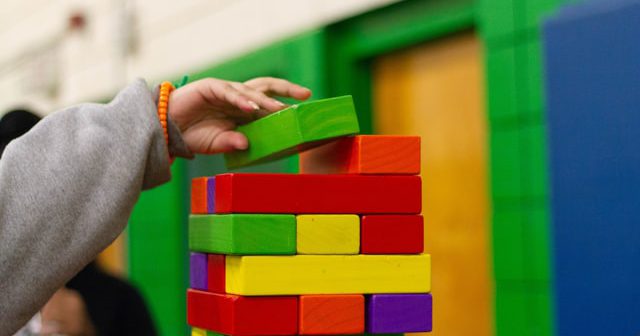How do you teach math to a child who barely knows their left from their right?
This question is a pertinent one that has been asked by both parents and tutors alike. You’ve probably asked yourself this question if you’re an online math tutor for kids. Typically, the best period to teach children math skills is between 2-8 since they’re usually more impressionable and active at this stage.
However, it’s not the easiest thing to do. Teaching math to a young child is often like trying to pry water from a rock: it’s difficult and requires tons of patience and expertise. If you’re a math tutor or a parent looking to tread the narrow path of early childhood education, here are some challenges you’d most likely face:
The idea of math being a complex subject
Studies have shown that a large percentage of children and students believe that math is a difficult subject. While this isn’t necessarily true, the idea of math being a complex subject makes it harder for kids to learn since they’re inhibited by fear.
Similarly, young children who have only been exposed to grammar and phonic lessons may get confused by the sudden infusion of numbers into their curriculum. As a homeschooling parent or math tutor with young students, you’ll need to shake off their fear of math and help them develop a great relationship with the subject by easing them gently into these uncharted waters.
If you don’t do this, you’ll most likely have a class of bored children who try to run away once they see numbers.
Distractions
A child is doodling on their worksheet. Another child is squealing and running around the class with a pretend airplane.
If you’re a teacher or parent, this scenario is an all too familiar one. Unlike adults, children simply don’t have the patience to sit in one spot for too long. Halfway through a lesson, they might get uneasy and start itching to play outside.
While this is entirely normal, it can pose a considerable challenge for math teachers and homeschooling parents. In most cases, learning or teaching Math for kids requires intense concentration, and since kids are easily distracted, you certainly have your work cut out for you as a math tutor online.
You’ll need to keep your child actively engaged and entertained for the duration of each lesson or risk losing their attention.
Different levels of learning speed
While some kids can quickly grasp concepts within seconds, others may take longer. This difference in their speed levels doesn’t connote different levels of intelligence. Instead, it highlights differences in personalities and learning needs.
As a parent teaching your children who have varying levels of learning speed, you’ll need to be able to accommodate everyone. Try as much as possible not to leave the slower learners behind and always come back for any child who seems lost. Not every parent or teacher can pull this off, but accommodating children’s different learning needs and speed can easily make you the best online math tutor.
Inability to recognize and understand numbers
As we mentioned earlier, young children who are only familiar with grammar and phonic lessons might find it hard to adjust to math. Since they probably don’t understand the concept of numbers, you’ll find it challenging teaching them certain things, such as how to count backward.
However, since Rome wasn’t built in a day, you can easily navigate this challenge by applying patience and adept teaching skills. Over time, your child will find it easier to grasp mathematical concepts and participate actively in class.
How to Help Young Children Understand Math Better
Early childhood education is certainly no walk in the park for most math tutors and parents. You’ll need to utilize efficient strategies and develop a new way of teaching math to ensure that your child fully understands.
Fortunately, we’ve collated some of the best strategies approved by experts for teaching math to young children. Let’s take a closer look at them, shall we?
Make math fun
No one ever uses “fun” and “math” in the same sentence. However, if you’re trying to help your child develop a healthy relationship with math, you’d need to make it fun and entertaining for them. This way, they’ll be more enthusiastic about learning.
But how exactly can you do this? Well, it’s simple. In today’s world, most math teaching websites have introduced game-based learning into their curriculum. This involves using games or creative ways to learn and grasp mathematical concepts. For instance, you could use fun applications or games to teach them all about addition or multiplication.
Not every child enjoys the traditional method of learning math, and using creative games is a great way to keep them engaged.
Use it in daily life.
Another excellent strategy for helping young children learn math is by incorporating it into their daily lives and activities. Consider this interaction for example:
Parent: “Honey, we’re making eggs for breakfast. Can you help me grab two eggs?”
Child: “Okay, mommy.”
P: “Thanks! How many eggs do we have left now?”
C: “Five?”
P: “That’s not correct, honey. Can you count using the eggs?”
C: “One, two, three, four, five, six… seven eggs!”
P: “Good job!”
In this conversation, we can see a mother teaching her child the concept of subtraction using eggs. Children are more likely to understand math when you make it a habit and apply it to daily activities that they understand. You could also try to introduce fun word problems into conversations.
For instance:
“If mommy has three bananas and she gives you one, how many bananas does mommy have left?”
This will help engage their critical thinking skills without them feeling overwhelmed or confused.
Identify their problem areas.
Sometimes, the problem isn’t that kids hate math. The problem could be that they’re actively struggling with a particular area or subject. For example, your child might be struggling with the multiplication table, which could lead to fear or apathy towards math in general.
If you can, identify their problem areas and work towards smoothing them out. If not, have a conversation with their teacher and find out what areas they need extra help with. This way, you can tackle the problem from the root and make learning a breeze for your child.
Be enthusiastic
Believe it or not, enthusiasm tends to rub off on children. If your child senses that you’re excited or enthusiastic about a particular subject, they’d most likely get with the program and share your excitement.
On the other hand, if you seem droll, they’d be as uninterested as you are. So, to help your child learn math faster and better, try as much as possible to radiate enthusiasm throughout the learning process. Use phrases and sentences like: “We’re going to try something exciting today! ” or “isn’t this fun?” to ramp up their excitement levels.
This way, they’d be more willing to learn instead of getting distracted or losing interest midway.
Final Thoughts
Teaching math to young children is certainly no walk in the park. However, it’s an essential step for them to develop the math skills they need for the future. With these tips outlined above, you can help your tiny tots build a healthy relationship with math.
Good luck!





I wish I was in that small percentage of people who thinks that math is easy but unfortunately is not. And I am not the only one, all my classmates struggle with this subject. So, in order to understand at least something, I use this service domymathhomeworks.com/calculus-homework/ which does my homework very quickly and in detail. In this way, I understand the lesson much quicker and easier. Don’t know what I would have done without such services.
Thank you for your advice, now being a professional teacher is not so easy, it is constantly worth learning new information and looking for new teaching methods in order to be effective. It is often important to just find a good approach to students and everything will work out.